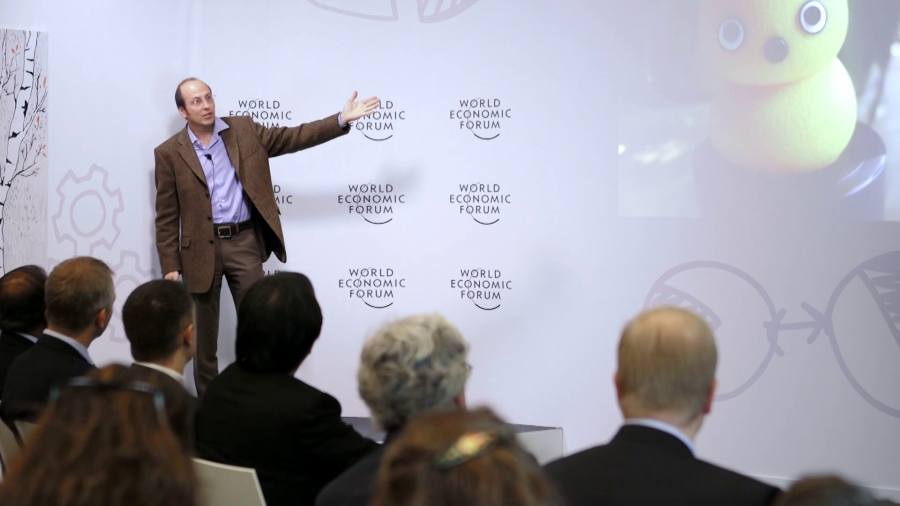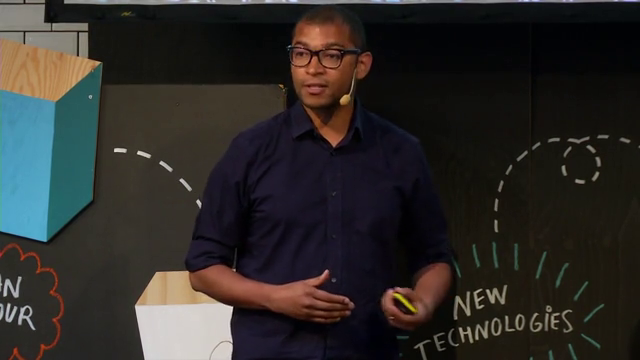We are in the midst of a shift in how we encounter information. And we’re wrestling with three paradigms at the same time. The oldest of these paradigms, for for most of us, is edited media. … You have a powerful gatekeeper, the newspaper editor, who says, “Here are things you need to pay attention to today. Give this a small amount of your time, and you will be roughly up to date with what you need to know.”
Archive (Page 2 of 3)
Much of class and isolation and pulling away is this sort of illusion that somehow we can be apart from the suffering that is in our midst. And that’s a myth. The social isolation that many people in the one percent experience is a wound.
What’s the best way to get over xenophobia? Eradicate the “xeno” portion of it, and then the “phobia” part will evaporate. You have to learn about the other. You have to make them not the other anymore. It’s education. We have to be exposed to each other. And not so that we could all be paper copies of one another, but so that we learn to appreciate the diversity in the world.
I see a set of constraints facing us in the future, and they’re all going to be very expensive. First is funding retirements for the Baby Boom generation. Second is continuing increases in the costs of healthcare. The third is replacing decaying infrastructure. The fourth is adapting to climate change and repairing environmental damage. The fifth is developing new sources of energy. The sixth is what I see as in all likelihood continuing high military costs. The seventh is the costs of innovation.
I like to think that we are an intelligent species. I mean, actually the people that often get this most quickly are the people who are poorest, because they know the system doesn’t work. But so many of our supposedly brightest people pick this up and don’t question it. And then we have the all the whole field of economics, which is an ideology built on assumptions that if you examine them are absurd. Because you know, economists simply look at the economy as a pricing system. They’re not system thinkers. Part of the cause our crisis is that we’re not educated to think in terms of systems.
I always wonder about people that are very pro-tech on the Left, for example. “Oh, we’ve got to keep all this. Of course. That’d be crazy.” You know, you want to preserve all of the level of technology. The question that occurs to me is, oh so you want to keep how many hundreds of millions of people in the mines, in the smelters, in the foundries, in the assembly lines? I would like to see them be able to do something else. But you’re going to have to keep them there one way or another if you want to have all this stuff.
We’ve got two paradoxical trends happening at the same time. The first is what I call in my book “the cult of the social,” the idea that on the network, everything has to be social and that the more you reveal about yourself the better off you are. So if your friends could know what your musical taste is, where you live, what you’re wearing, what you’re thinking, that’s a good thing, this cult of sharing. So that’s one thing that’s going on. And the other thing is an increasingly radicalized individualism of contemporary, particularly digital, life. And these things seem to sort of coexist, which is paradoxical and it’s something that I try to make sense of in my book.
Historically, there have been all of these moments, moments of social turmoil where people have come together and they have questioned a lot of the common sense of their eras and they’ve torn it to bits. And the result has been kind of…truths, like new truths that become common sense later.

Instead of having our children become consumers of robotics technology, consumers of products, we’d have to train them to be producers, to realize that they can use robotic technologies to build something with their intuition, their creativity, and their sense of purpose, that has meaning to them. Then we’d have a technologically fluent society.

